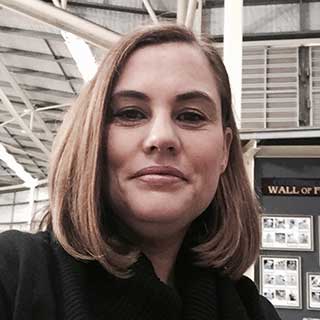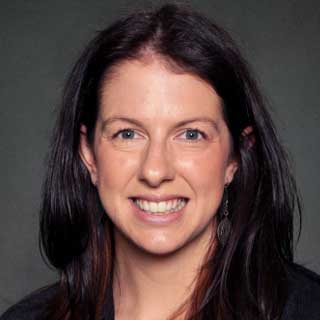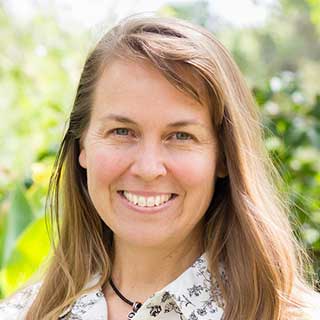Sequence 1: Stem cell understanding ⟩ Module 1:
What are stem cells?
The initial module within Sequence 1 focuses on establishing a basic understanding of stem cells and their role within human growth and development.
Summary
VCE Biology (2016 -2020)
Unit 2, Area of Study 1, Outcome 1, VCE Biology Study Design
Key Knowledge
Cell growth and differentiation
- the types and function of stem cells in human development, including the distinction between embryonic and adult stem cells and their potential use in the development of medical therapies
Duration

Student learning outcomes
On completion of this module, students will:
- have a basic understanding of the structure and function of stem cells.
- understand the potential for medical application of stem cell science and technology.
- use appropriate scientific terms when communicating about stem cell science.
Teacher background information
The core resources for this sequence are from the: National Stem Cell Foundation of Australia, Teacher’s Kit
Download Stem Cell Teacher’s KitNote: Since the Teacher’s Kit was written a number of the links to which it refers have become inactive. It nevertheless remains an excellent resource.
The relevant background reading and activities from this Teacher’s Kit are referenced in the white boxes below. Further background material and alternative activities are highlighted in yellow.
Background material
Teacher's Kit (p.12)
Chapter 1 - What are these things called stem cells?
A basic introduction to stem cells and outline of activities.
Website
Stem Cells Australia: About stem cells
This website presents the latest stem cell information from Australian researchers and provides clear and comprehensive details on stem cells that is suitable for both teachers and students.
Handbook
The Australian Stem Cell Handbook
The Australian Stem Cell Handbook is regularly updated and can be accessed via the National Stem Cell Foundation of Australia or Stem Cells Australia’s website.
Website
Stem Cell Channel: What are stem cells?
An Australian based site that includes a wide range of videos covering a diverse number of topics relating to stem cells. Videos vary in length. The resources section includes fact sheets and additional reference sites.
Video
What is a stem cell? Narrated by Dr Jim Till
Significant advances in stem cells have been made since Dr Jim Till and colleagues proved stem cells existed. In this short animated video (1:15 min) narrated by Dr Till, the question “What is a stem cell?” is answered starting with a brief history, characteristics and types of stem cells.
Video
SciShow: Stem cells
In typical SciShow style this video (3:47 min) provides students with a fact filled journey starting with cells they know and linking them back to the stem cells covering what they are, what they do and how they can be used.
Lecture Series
BioInteractive: Stem Cells, Cloning and Regeneration
This presentation can be viewed in full or teachers are able to view specific topics of interest by navigating through the four lectures (Lecture 1: Understanding Embryonic Stem Cells; Lecture 2: Adult Stem Cells and Regeneration; Lecture 3: Coaxing Embryonic Stem Cells; Lecture 4: Stem Cells and the End of Aging). Please note this resource was developed prior to the discovery of iPS cells. It is nevertheless informative.
Activities
Teacher's Kit (pp.13-15)
Activity 1.1 - Introducing stem cells
Six approaches to introduce stem cells and elicit student pre-instructional understanding with a focus on brainstorming. A single activity or a combination of activities may be used.
Teacher's Kit (pp.17-18)
Activity 1.2 - Tuning in
Four approaches to introduce stem cells and elicit student pre-instructional understanding with a focus on discussion around stem cell science and associated issues. A single activity or a combination of activities may be used.
Other potential activities
Activity
Stem Cell Socratic Discussion (stimulus - Lateline articles or similar topical piece)
This activity provides the opportunity to engage in open discussion around scientific issues in a supportive environment.
Students are required to read and reflect on a media article on a topical stem cell science issue.
Stem cell therapy dilemma - Lateline or other media piece / stakeholder view.
Ethics and reprogramming: ethical questions after the discovery of iPS cells
This activity will encourage consideration of stem cell science and also elicit student beliefs and misconceptions. The emphasis at this point is not to become embroiled in the issues, but to address students’ knowledge and understanding of the science of stem cells.
The following two websites provide background on the pedagogical approach:
In addition to the information presented, in large groups, the session can be run with an ‘inner circle’ and an ‘outer circle’. The Socratic discussion is then run in two phases. Initially only the students in the inner circle are allowed to contribute to the discussion. Subsequently, students in the outer circle swap with the students in the inner circle and the discussion continues.
Activity
Stem Cell History Timeline Development (resource - NSW timeline)
This website from UNSW explores a range of scientific aspects related to stem cell research and discoveries from 1878 through to 2015. As a class activity a timeline can be created with students individually or in pairs researching one area and then adding it to the prepared timeline communicating their findings to the class as the timeline takes shape. Focus on years from and including 1981.
Resource
Stem Cell Adventure Comic Book (for student reference)
This alternative resource is provided as its format may appeal to different students and contains valuable information on the history, science and ethical issues associated with stem cells.
Next module: Types and functions of stem cells
 Contemporary VCE Biology
Contemporary VCE Biology


